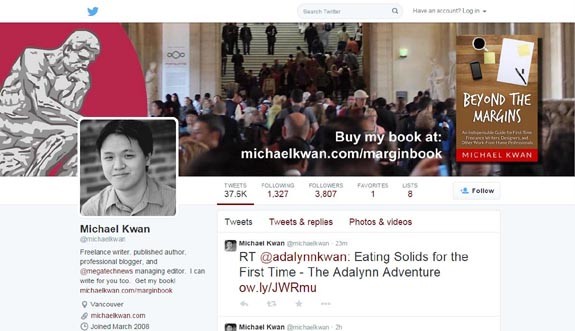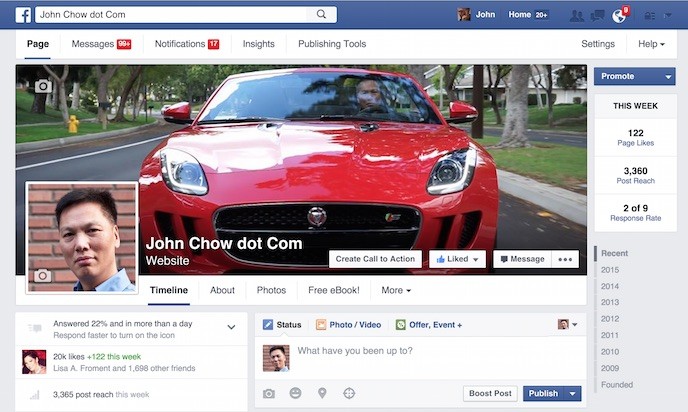There are all sorts of places where you can build up your online presence and whether you want to be a professional blogger, an e-commerce guru, or a highly sought-after public speaker, it’s worthwhile putting your name out there and getting known. For many of us, the natural inclination is to develop our social media presence as much as possible.
We want to have more followers on Twitter, more fans on Facebook and more subscribers on YouTube. And these are all worthwhile endeavors, but they have to come back to a very simple and fundamental philosophy about how you should go about building your online presence: don’t build on rented land.
Let’s start with the perspective of actual land with actual real estate. Let’s say that you are renting a plot of land somewhere and you want to erect your business there. You spend hundreds of thousands of dollars to do so and things are going well. As time goes on, the neighborhood gets busier and your business is thriving. Your landlord realizes that the land underneath your shop has dramatically increased in value.
Your landlord can then do one of two things. He can dramatically increase your rent, dramatically eating in your bottom line. Or he can kick you out at the end of your lease and rent the spot out to someone who is willing to pay more rent. Under both scenarios, you are virtually powerless to do anything.
Now, what does this have to do with the Internet and social media? In the context of the web, a social network like Facebook is “rented land.” Mark Zuckerberg and the rest of the people behind Facebook own that website. They can and do change the rules on a regular basis and you are virtually powerless to do anything about it.
You can put up a world of effort to build up your fan base on your Facebook page. You can work hard to get those likes and to increase engagement. You can find yourself with about 20,000 fans, as is the case with the page for John Chow dot Com. But what happens if Facebook makes a dramatic change and you suddenly lose touch with those 20,000 fans?
It’s not just Facebook either. The exact same thing can just as easily happen nearly anywhere else on the web. You can see the same thing happen on Twitter, Pinterest, Ello, YouTube, eBay, or any number of other channels. As large as your fan base may be on any of these sites, the rug can be pulled out from under you at any moment.

Does this mean that you shouldn’t build on “rented land” at all? Not exactly. It is still very worthwhile to get that user base active and engaged with you on channels like Twitter and YouTube. There is definite value there.
However, it is positively critical that your overall strategy doesn’t end on these sites. Instead, you should be using social media (and other websites) as a funnel, leading those key visitors, fans and leads back to something that you do control. For most of us, this would be our own websites. And from there, you can grow your mailing list too.
Yes, it may be true that your own site and your own mailing list are likely hosted by someone else — like HostGator and Aweber, respectively — but you do have complete control over them. Should you choose to change web hosts, you don’t lose your website. Should you decide to power your mailing list with MailChimp instead, you can export and import your list accordingly. It’s still entirely yours.
You’re no longer building on rented land, because the real land is in your hands. And that’s the real power that you’ll hold for sustained growth and success as an Internet entrepreneur.
